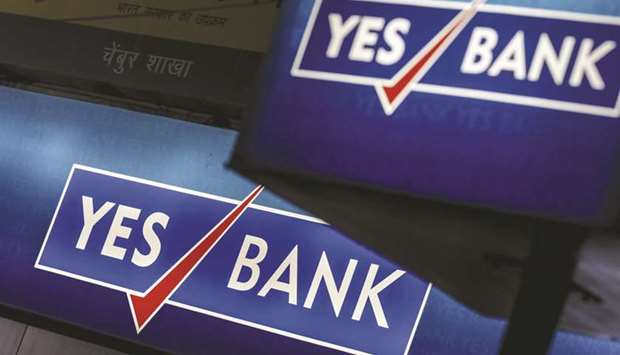Yes Bank Ltd, the Indian lender that was rescued in March, wants to replenish its deposit base after losing more than half in the past year, its new chief executive officer said after posting an unexpected return to profit.
“Our No 1 priority is to get deposits,” CEO Prashant Kumar said in a phone interview Thursday.
The lender will focus on adding low-cost, stable retail savings, a departure from its previous practice of depending on cash from companies, he said.
Kumar took the post in March with the challenge of reviving the private-sector lender that has seen capital erode as it contends with bad loans as well as the outflow of deposits.
The bank aims to raise Rs100bn to Rs120bn ($1.3bn to $1.6bn) of equity capital, preferably via a follow-on public issue by mid-July that will last for the next two years, he said.
“There is a large amount of investor interest,” Kumar said, adding that the bank has written to the market regulator to fast-track its plan and has shortlisted six merchant bankers to arrange the deal.
Yes Bank shares surged earlier, after the bank unexpectedly posted net income of Rs26.3bn in the three months ended March 31, thanks to a one-time gain from a bond writedown.
The bank clawed back the amount it was supposed to pay to holders of its additional Tier 1 bonds after the Reserve Bank of India waived its payment liability on the securities following its bailout.
Excluding the bond gain, it posted a loss of Rs36.7bn as provisions rose.
A nationwide lockdown, imposed to contain the coronavirus outbreak, is increasing the risk of defaults across the financial sector.
Yes Bank isn’t immune and expects another up to Rs170bn of fresh loan slippages if the shutdown extends beyond May, Kumar said. “Uncertainty is to the fullest extent,” he said. “We can plan only for the known things.”
Yes Bank has been on a stormy ride following the ouster of its founder and former CEO Rana Kapoor in January 2019.
A group of eight lenders led by State Bank of India infused Rs100bn into the bank in March after the regulator intervened to prevent it from failing.
Restrictions on deposit withdrawals, imposed as part of the bailout, were lifted later that month.
“The worst for Yes Bank has been accounted for and the new management is expected to put it on a track of growth,” said Gaurang Shah, vice president at Geojit Financial Services Ltd. “If you are an investor in Yes Bank shares, then you need to stay married to it for the next couple of years to recover your money.”
Net income compared with a loss of Rs15.1bn a year earlier, the Mumbai-based bank said late Wednesday.
Analysts expected a loss of Rs42.2bn.
Provisions rose 33% from a year earlier to Rs48.7bn, though they were down from Rs247.7bn in the previous quarter. Gross bad-loan ratio fell to 16.8% from 18.9% at the end of December.
Capital adequacy ratio stood at 8.5%, below the regulatory minimum of 10.875%. Core equity capital stood at 6.3% versus a regulatory minimum of 8%. Deposits totalled Rs1.05tn, down 36% from December and 54% from a year earlier.

Signage for Yes Bank is displayed at a branch in Mumbai. The bank aims to raise Rs100bn to Rs120bn ($1.3bn to $1.6bn) of equity capital, preferably via a follow-on public issue by mid-July that will last for the next two years, its new chief executive officer Prashant Kumar said.
